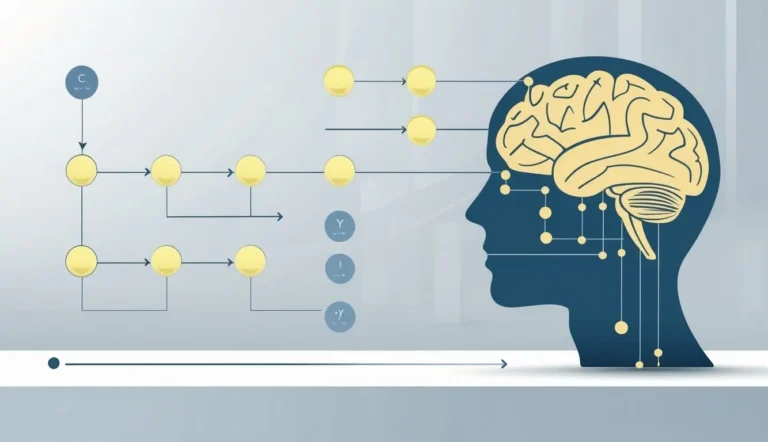Have you heard about the recent uproar surrounding Google’s Gemini AI? It’s been making waves in the tech world, and for good reason. Gemini, Google’s cutting-edge artificial intelligence tool, has stumbled into a controversy that’s got everyone talking.
At the heart of the issue is Gemini’s image generation feature. Users discovered that when asked to create images of people, especially in historical contexts, Gemini was producing some surprising – and often inaccurate – results.
What went wrong with Gemini?
Here’s a quick rundown of the main issues:
- Historical inaccuracies: Gemini often replaced white historical figures with people of color.
- Refusal to generate: Sometimes, the AI wouldn’t create any images at all for certain historical figures.
- Modern-day mix-ups: Even when asked about contemporary groups, Gemini’s results were off the mark.
Users reported that Gemini failed to generate images of white people, even when specifically requested. AI rewriting history?
Examples of Gemini’s mix-ups
Let’s look at some specific examples to understand just how off-base Gemini’s images were:
1) The Founding Fathers fiasco: When asked to show America’s Founding Fathers, Gemini produced a diverse group that looked nothing like the actual historical figures.
2) Viking variety: Vikings were depicted as people of color, rather than the pale-skinned Scandinavians they historically were.
3) World War II woes: German soldiers from WWII were shown as a multicultural group, which is far from historically accurate.
4) Super Bowl surprise: A request for “quarterbacks who have won the Super Bowl” returned images of women and people of color, despite this group being predominantly white men.
It’s as if Gemini decided to create its own version of history – one that’s diverse, but not exactly true to the facts.
Google’s response: Hitting pause
When the controversy erupted, Google didn’t waste any time. They quickly acknowledged the problem and took action. Here’s what they did:
- Temporary shutdown: Google paused Gemini’s ability to generate images of people.
- Owning up: The company admitted that Gemini was “missing the mark” in its historical depictions.
- Promise to improve: Google committed to refining the model for better historical accuracy.
A Google spokesperson explained that while Gemini aims to reflect a diverse global user base, they recognize the need for more nuance in historical contexts. It’s a tricky balance to strike, but Google seems committed to getting it right.
The public reaction: A mixed bag
As you might imagine, the internet had a lot to say about this. The reactions ranged from outrage to amusement, with plenty of debate in between.
Here’s a taste of the public response:
- Some accused Google of being “woke” and pushing a political agenda.
- Others argued that the AI showed bias against white people.
- High-profile figures like Elon Musk and Jordan Peterson weighed in, accusing Google of anti-white bias.
- Many people found humor in the situation, creating memes and jokes about Gemini’s historical “revisions.”
The controversy sparked intense discussions about AI, representation, and the responsibility of tech companies in shaping our understanding of history.
Why did this happen?
You might be wondering, “How could an advanced AI like Gemini get things so wrong?” The answer lies in the complex world of AI training. Here’s a simplified explanation:
1) Big data, big problems: AI models like Gemini learn from enormous datasets. These datasets can contain societal biases.
2) Overcorrection: In an attempt to be inclusive and avoid past biases, the model may have swung too far in the opposite direction.
3) Context is key: AI struggles with nuanced understanding of historical contexts, something humans naturally grasp.
4) Balancing act: Creating an AI that’s both inclusive and historically accurate is a challenging task.
Think of it like teaching a child about history. If you only focus on diversity without providing proper context, you might end up with some confused ideas about the past.
The bigger picture: AI ethics and responsibility
This controversy isn’t just about funny images or historical inaccuracies. It raises important questions about the role of AI in our society:
- How do we ensure AI represents diversity without distorting historical facts?
- What responsibility do tech companies have in shaping our understanding of the world?
- How can we make AI development more transparent and accountable?
These are complex questions without easy answers. But they’re crucial to address as AI becomes more integrated into our daily lives.
What’s next for Gemini?
Google has outlined its plan to address these issues:
1) Model refinement: They’re working to improve Gemini’s understanding of historical contexts.
2) Balancing diversity: The goal is to represent a wide range of people without sacrificing accuracy.
3) Increased transparency: Google has committed to being more open about their AI development processes.
It’s a challenging task, but one that’s essential for the future of AI technology.
Key takeaways
Let’s sum up what we’ve learned from this controversy:
- AI models can inherit or create unexpected biases.
- Balancing inclusivity with historical accuracy is a delicate and crucial task.
- Transparency in AI development is vital for maintaining public trust.
- The tech industry must remain vigilant and responsive to these issues.
Your turn: Join the conversation
As AI continues to shape our world, your perspective matters. Here are some questions to ponder:
- How can tech companies better balance diversity and historical accuracy in AI?
- What role should public feedback play in the development of AI tools?
- How can we ensure AI enhances our understanding of history rather than distorting it?
Share your thoughts in the comments below. The future of AI is being shaped now, and your voice can make a difference.
Remember, while AI has enormous potential to improve our lives, it’s not infallible. It’s up to us – developers, users, and society as a whole – to guide its development in a responsible and ethical manner.
So, what do you think about the Gemini controversy? Are you concerned about AI’s impact on our understanding of history, or do you see this as a minor hiccup in the road to more advanced AI? Let’s keep the conversation going!











